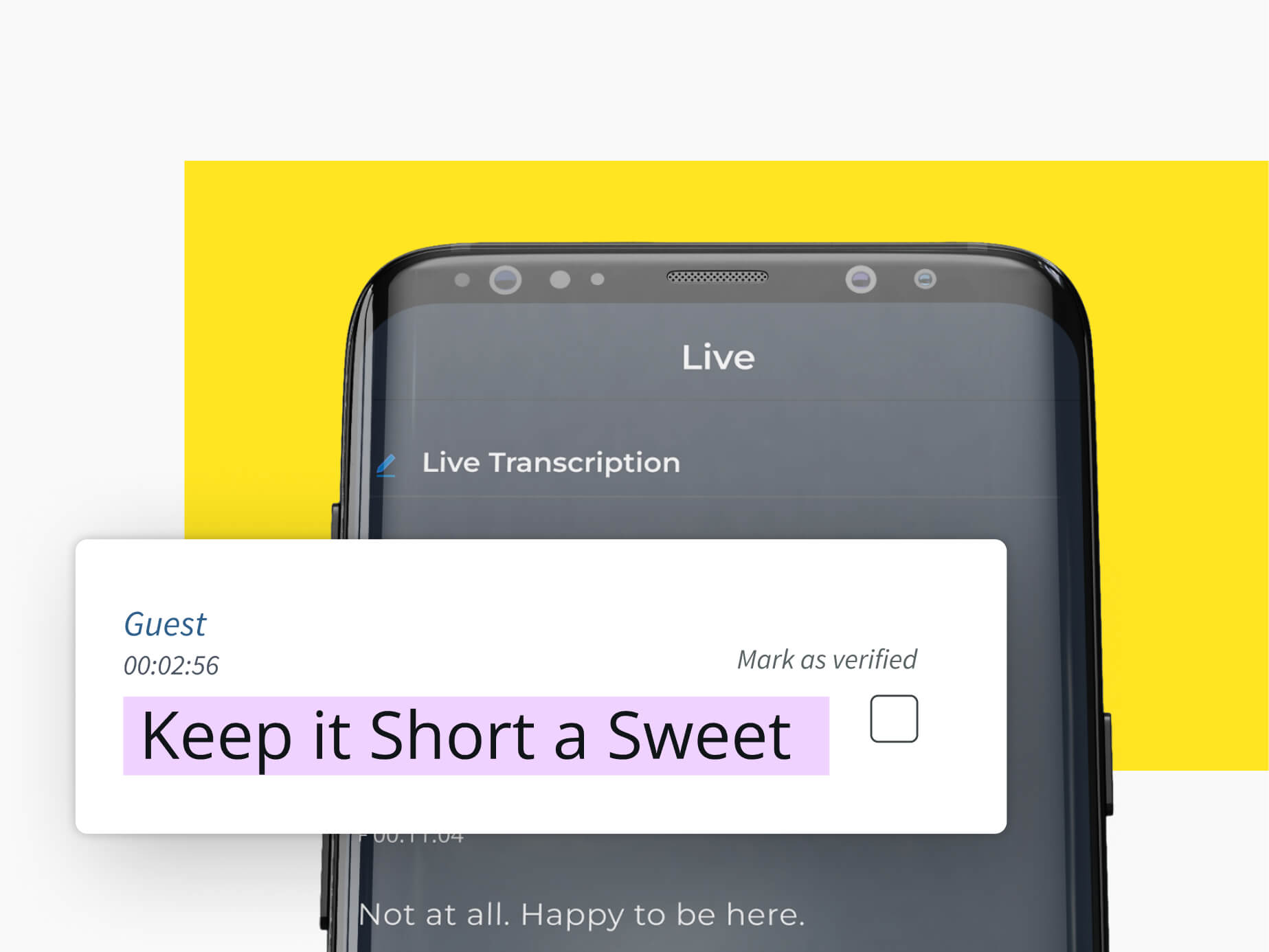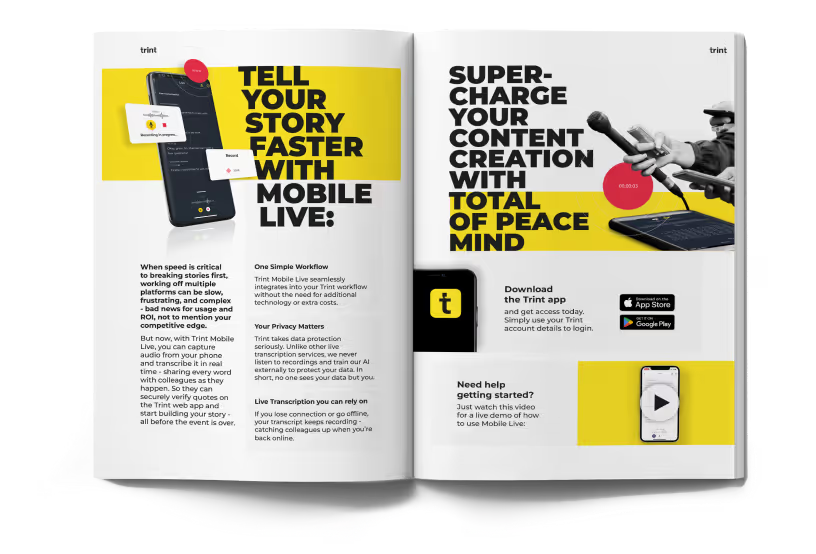
Les rédacteurs reçoivent des tonnes de propositions chaque jour ; la vôtre doit donc frapper fort. Quelque chose de pertinent, original et irrésistible. Dans ce guide, nous décomposons tout ce qu'il faut savoir pour rédiger un pitch qui capte l'attention. Que vous soyez un pro cherchant à améliorer sa pratique ou un freelance qui tente d'entrer dans la danse, ces conseils et exemples feront ressortir vos propositions dans une boîte de réception encombrée.
Couvrez les bases dès le départ
Maîtriser les fondamentaux est essentiel pour attirer l'attention d'un éditeur dès le départ. Commencez par ces étapes pour rendre votre pitch impossible à ignorer.
- Objet : Commencez par une ligne d'objet forte. Gardez‑la claire, directe et pertinente.
- Présentez‑vous : Présentez‑vous brièvement avec vos références pertinentes. Par exemple : « Bonjour [Nom de l'éditeur], je suis [Votre nom], journaliste freelance spécialiste des enjeux environnementaux. »
- Ouvrez avec une accroche : Commencez par une phrase qui capte l'intérêt de l'éditeur. Cela peut être un fait intriguant ou une question qui donne envie de lire la suite.
- Expliquez le sujet : En quelques phrases, résumez votre idée d'article.
- Soulignez votre angle original : Mettez en avant ce qui rend votre sujet différent. Par exemple, pour un sujet sur le changement climatique, insistez sur un angle inédit, des interlocuteurs uniques ou une perspective locale.
- Décrivez votre approche : Montrez que vous avez réfléchi aux détails : sources potentielles, données pertinentes et visuels prévus.
- Expliquez la pertinence : Reliez le sujet au public de la publication.
- Proposez un appel à l'action : Terminez en invitant à discuter du projet.
Vous pouvez utiliser ce modèle de pitch comme point de départ, mais ajustez‑le au sujet et à la publication. Si c'est trop verbeux, raccourcissez — des pitches plus percutants peuvent avoir plus d'impact !
Exemples de pitch
Vous voulez voir ce modèle en action ? Voici cinq exemples de pitchs que vous pouvez utiliser comme source d'inspiration. Si vous avez du mal à rester concis ou convaincant, vous pouvez écrire votre version puis utiliser des outils d'écriture AI comme Gemini pour la rendre plus percutante.
Exemple 1
Objet : Pitch : Microplastiques dans l'eau potable et impacts sur la santé
Pitch : Bonjour [Nom de l'éditeur],
Je suis [Votre nom], journaliste freelance spécialisé en santé environnementale.
Que ressentiriez‑vous si l'eau que vous buvez chaque jour contenait des microplastiques — de minuscules particules plastiques aux effets sanitaires incertains ? C'est une pensée inquiétante et cela va au‑delà de la simple contamination : c'est une crise de santé publique potentielle avec d'importantes lacunes en recherche et en réglementation.
Mon reportage explorerait les études de pointe montrant comment les microplastiques pénètrent notre organisme via l'eau potable et les efforts pour mettre à jour les normes de qualité de l'eau en conséquence.
L'impact personnel et immédiat des microplastiques est un angle encore peu exploré qui parlera au lectorat. J'apporterai ce récit à la vie grâce à des interviews exclusives de scientifiques, des exemples concrets et une exploration des conséquences futures si rien n'est fait.
Ce sujet d'actualité a des implications larges et, avec l'intérêt de [Publication] pour la santé environnementale, je pense qu'il résonnera avec vos lecteurs.
Faites‑moi savoir si vous souhaitez en discuter davantage !
Bien cordialement,
[Votre nom]
[Vos coordonnées]
Exemple 2
Objet : Pitch : Exclusif — Comment vos données personnelles sont vendues à votre insu
Pitch : Bonjour [Nom de l'éditeur],
Je suis [Votre nom], journaliste freelance spécialisé en tech et vie privée.
Saviez‑vous que vos données personnelles sont achetées et revendues sans votre consentement ?
Le marché des data brokers a explosé et votre empreinte numérique est devenue une marchandise pour des entreprises que vous ne connaissez même pas.
Dans mon enquête, j'explorerai le monde opaque des courtiers en données — les entreprises profitant de vos informations privées. L'article montrera comment les données sont collectées, achetées et vendues à huis clos, et pourquoi la régulation peine à suivre.
J'ai une interview exclusive avec [Nom de l'interviewé], un ancien hacker devenu lanceur d'alerte, qui révélera comment les données se négocient et qui en profite. Grâce à son témoignage, je montrerai la facilité d'accès et d'échange de ces données.
Compte tenu de l'intérêt de [Publication] pour la tech, la vie privée et les droits des consommateurs, ce sujet devrait fortement intéresser votre audience.
Merci pour votre temps et considération. N'hésitez pas à me dire si vous souhaitez en discuter !
Bien cordialement,
[Votre nom]
[Vos coordonnées]
Exemple 3
Objet : Pitch : Les influenceurs IA envahissent les réseaux sociaux
Pitch : Bonjour [Nom de l'éditeur],
Je m'appelle [Votre nom], journaliste freelance qui explore souvent l'intersection entre tech et culture.
Avez‑vous l'impression que votre fil d'actualité est envahi par du contenu généré par IA ? En 2025, les personnalités alimentées par l'IA ne sont plus une nouveauté — ce sont de véritables influenceurs qui transforment la consommation de contenu, les marques et la culture des célébrités.
Je propose une grande enquête sur l'impact croissant des influenceurs IA, des modèles virtuels aux célébrités numériques. L'article couvrira leur création, leur influence sur la mode et la santé mentale, et les questions juridiques et éthiques qu'ils soulèvent quant à l'authenticité à l'ère numérique.
J'ai déjà obtenu une interview avec un développeur IA de premier plan pour un regard exclusif sur les perspectives à venir.
Avec l'intérêt de [Publication] pour les tendances et l'innovation, ce sujet devrait captiver vos lecteurs. Je serais ravi d'en discuter si vous êtes intéressé !
Bien cordialement,
[Votre nom]
[Vos coordonnées]
Exemple 4
Objet : Pitch : Vol à l'étalage en hausse ? 1 Britannique sur 4 dit en avoir été témoin
Pitch : Bonjour [Nom de l'éditeur],
Je suis [Votre nom], journaliste freelance spécialisé sur les tendances de consommation et les enjeux sociaux. Mon article récent sur [sujet] a été publié dans [Publication].
Une nouvelle étude révèle que près d'un Britanique sur quatre a été témoin d'un vol à l'étalage l'année dernière. Avec la montée du vol à l'étalage, les commerçants subissent la pression et certaines grandes enseignes investissent dans des mesures de sécurité renforcées.
Je propose un dossier explorant cette hausse, les causes, l'impact sur les détaillants et les réponses mises en place. J'inclurai des témoignages de commerçants, des représentants de la police et de simples clients ayant assisté à ces faits.
Avec l'augmentation du coût de la vie et la pression sur les commerçants, ce sujet est particulièrement d'actualité. Seriez‑vous intéressé ?
Bien cordialement,
[Votre nom]
[Vos coordonnées]
Exemple 5
Objet : Pitch : Enquête : Pourquoi la Génération Z se détourne de l'alcool pour la « sober curiosity »
Pitch : Bonjour [Nom de l'éditeur],
Je suis [Votre nom], journaliste freelance couvrant tendances et société.
J'ai réalisé une enquête auprès de plus de 1 000 membres de la Génération Z et les résultats montrent un changement fascinant : 64 % des jeunes adultes au Royaume‑Uni réduisent ou arrêtent complètement l'alcool. Ce mouvement, motivé par la santé, les réseaux sociaux et la recherche du bien‑être, redéfinit la façon de socialiser de cette génération.
Je propose un dossier basé sur ces données exclusives, analysant pourquoi la Génération Z change sa relation à l'alcool, comment les marques réagissent et ce que cela annonce pour l'avenir de la vie nocturne et du bien‑être.
Les conclusions sont opportunes, alors que le marché des boissons non alcoolisées devrait croître. Seriez‑vous intéressé pour couvrir ce sujet ? N'hésitez pas à me poser des questions.
Bien cordialement,
[Votre nom]
[Vos coordonnées]
Adaptez votre pitch à la publication
Le rapport State of Journalism de Muck Rack révèle que les éditeurs rejettent souvent des pitches parce qu'ils manquent de pertinence ou de personnalisation. Évitez ce piège en recherchant la publication en profondeur — son style, son ton et son audience — pour adapter votre pitch.
Certaines publications publient leur guide de style en ligne. Sinon, parcourez leurs articles pour saisir le ton et le public. Cet effort montre aux éditeurs que vous êtes sérieux et augmente vos chances d'être publié.
…

Soyez présent sur les réseaux sociaux
Créer des connexions en journalisme est essentiel : investissez du temps dans la communauté freelance et journalistique. Suivez d'autres freelances sur les réseaux, participez à des événements sectoriels et n'hésitez pas — ces contacts mènent souvent à des recommandations et collaborations. Vos pairs partageront peut‑être des méthodes qui fonctionnent pour leurs pitches pour affiner le vôtre.
Suivez aussi des éditeurs et journalistes sur X, Bluesky ou LinkedIn. Cela vous tient informé des tendances et vous donne parfois des conseils de pitch précieux. Certains journalistes indiquent ce qu'ils recherchent, ce qui vous permet d'anticiper les sujets chauds.
Proposez un article, pas une idée
Plutôt que de soumettre une idée vague, peignez l'histoire que vous voulez raconter. Exposez l'angle, qui vous allez interviewer et pourquoi c'est important maintenant. Si vous avez déjà une citation forte, mentionnez‑la pour accrocher l'éditeur. Cela facilite la visualisation du produit final et montre que vous avez réfléchi à la livraison. Une narration concise et claire donne confiance à l'éditeur quant à votre capacité d'exécution.
La transcription peut vous aider à obtenir des citations et données précises rapidement, utile si vous souhaitez pitcher avant les autres. Vous pouvez aussi consulter d'anciennes notes et transcriptions pour trouver une idée.
Les éditeurs cherchent des angles actuels et uniques : expliquez pourquoi votre histoire compte maintenant et posez‑vous la question « Pourquoi maintenant ? » ou « Pourquoi moi ? ». Pouvez‑vous offrir un point de vue inédit sur un sujet tendance ? Les éditeurs aiment une perspective unique. Montrez votre enthousiasme — c'est persuasif.
Restez court et percutant
Les éditeurs manquent de temps comme les freelances, donc ils liront vos mails en diagonale. Facilitez‑leur la tâche en étant direct, avec l'information essentielle.
Les éditeurs veulent les cinq W — qui, quoi, quand, où et pourquoi. Une ou deux phrases suffisent pour aller à l'essentiel. Un bon pitch concis doit rester sous 300 mots : évitez le remplissage. Un résumeur AI peut aider à condenser sans perdre de force. Vous pouvez même résumer une interview pour l'inclure dans votre pitch et montrer votre angle.

Terminez par un appel à l'action
Concluez votre pitch en invitant l'éditeur à vous répondre. Demandez s'il souhaite en savoir plus ou s'il a des questions. Cela montre votre ouverture au dialogue et facilite une réponse.
Si l'éditeur est partant, des outils comme Trint Editor simplifient la collaboration. Vous pouvez donner l'accès aux éditeurs pour commenter documents et transcriptions et accélérer l'édition.
Comment relancer un pitch
Si vous n'obtenez pas de réponse, n'hésitez pas à envoyer un rappel poli après un délai raisonnable. Attendez au moins une semaine, reconnaissez qu'ils sont occupés et rappelez brièvement l'idée et pourquoi elle convient à la publication.
Modèle de relance
Objet : Relance — Mon pitch : Microplastiques dans l'eau potable
Bonjour [Nom de l'éditeur],
J'espère que vous allez bien. Je souhaitais relancer mon pitch sur [sujet]. Compte tenu des préoccupations croissantes autour de ce sujet, je pense qu'il pourrait fortement résonner auprès des lecteurs de [Nom de la publication].
Si vous avez des questions ou souhaitez en discuter, je suis à votre disposition pour fournir plus d'informations ou des sources.
Merci pour votre considération. Au plaisir de vous lire.
Bien cordialement,
[Votre nom]
[Vos coordonnées]
---------------------
Mais jusqu'où faut‑il insister ? Selon des données Cision, la plupart des journalistes recommandent de relancer au moins une fois, mais seulement 10 % conseillent de relancer plus d'une fois. Dans cette profession, la persistance n'est pas toujours payante ; trop de relances peuvent vous valoir un refus catégorique.
Rédiger le pitch parfait, ce n'est pas juste proposer une bonne idée — c'est prouver pourquoi votre histoire doit être racontée. En personnalisant votre approche et en utilisant des outils de transcription AI comme Trint pour accélérer vos recherches, vous façonnerez un pitch qui va droit au cœur de l'histoire. Réservez une démo aujourd'hui pour voir comment Trint peut transformer votre façon de pitcher.
N'oubliez pas de consulter notre Creator Hub pour d'autres conseils médias essentiels. Nouveau dans le secteur ? Jetez un œil à notre glossaire du jargon rédactionnel pour apprendre à pitcher comme un pro.

DON'T take our word for it
Download our eBook, Telling Stories Faster With Trint, and hear how Trint is making content creation faster, easier and, most importantly, painless for newsrooms across the world.
Download








